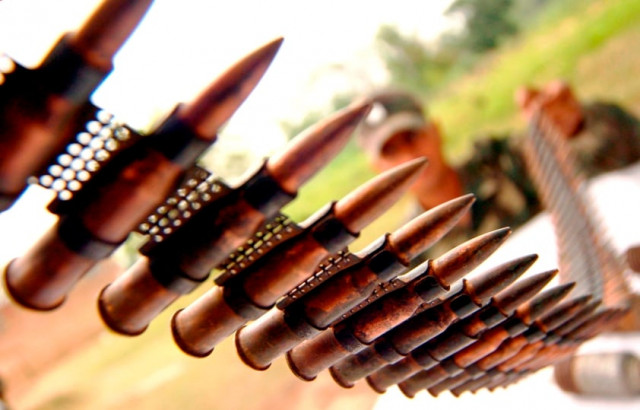Defence budget and national security
The consensus behind the quantum of what Pakistan spends on its military is wearing thin.

Defence budget and national security
The new military allocation is 6 per cent more than the past year. Finance Minister Hafeez Sheikh says this spending is ‘essential’ and most of us would agree, given our state of national security at the present time. But if ones looks closely, one can actually arrive at another definition of the defence budget. The spending is for an army that has been organised to fend off the imagined offensive of a state designated as ‘the enemy’ in Pakistani nationalism. If one include the spreading claw of terrorism as a ‘siege from within’, one can say that Pakistan is fighting two enemies at the same time: The external one, India, and the internal one, terrorism, that has killed 35,000 innocent citizens over almost a decade — far above any count of deaths suffered in any war with India.
The security paradigm has been changing imperceptibly as Pakistan continues to focus on India and its defence spending. Given the comparative amounts spent on defence against terrorism and against India, the gap defies all strategic logic. Our answer to terrorism was originally to engage in the internal conflict with the help of the world by joining the war on terror. The world responded by pledges of money along with the pledge of keeping the Indian threat postponed through diplomacy. The money was eventually channelled through the IMF to keep Pakistan on the right economic path, and diplomacy was applied to nudge India and Pakistan towards a peaceful relationship. It was obvious to all that Pakistan could not fight terrorism and India together.
But Pakistan’s ‘threat paradigm’ has remained strangely unchanged. Despite growing evidence to the contrary, Pakistan has linked domestic terrorism by Taliban and al Qaeda to India and — given disagreement with the US over the way the war against terror is being fought — the US, which actually gives military and civilian aid to Pakistan. There is a growing ‘nationalist’ trend of ‘externalising’ internal threat to safeguard the old paradigm of ‘external threat’. This concentrates the mind on India instead of al Qaeda and its affiliates, some of whom remain adjuncts of Pakistan’s overall military response to India’s presumed hostile intent. When pressed to change this ‘media-managed’ perception, the official response has been abjuration of the war against terror as ‘not our war’.
The more we postpone our linking of national security to the national economy, the more we will be seen test-firing our expensive Hatf missiles against India, while the Taliban attack our military infrastructure. India is flying high economically and can perhaps afford to spend lavishly on weapons. However, India’s annual defence spending over the last 50 years has averaged about 2.5 per cent of GDP, whereas Pakistan’s annual military spending during the same period has averaged about 6 per cent of GDP. It is accepted on all hands that 3 per cent defence spending is tolerable but over this point it begins to eat into the quality of life of the people who are sought to be protected.
It is not the strength of will to fight India; it is the intellectual agility to link our security to the national economy that is in demand. When we had a healthy growth rate under former president Pervez Musharraf, our defence budgets had started looking good. Now we have to repair the economy to enable it to bear the burden of our military preparedness. And the economy will not get off the ground unless we call a spade a spade and focus more realistically on the internal threat and its linkages to our old ‘threat perceptions’.
Published in The Express Tribune, June 7th, 2011.















COMMENTS
Comments are moderated and generally will be posted if they are on-topic and not abusive.
For more information, please see our Comments FAQ